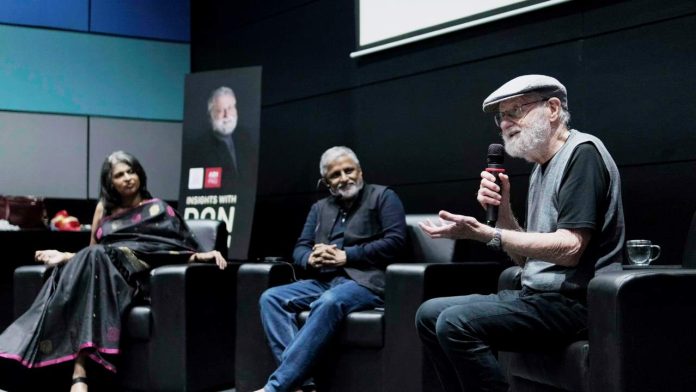Advocates integrating multidisciplinary approaches in design education
PUNE: “Designers should be involved in the development of Artificial Intelligence to ensure that collaborative and ethical tools are developed. Do not consider AI as a threat but as a tool to enhance creativity and problem-solving capabilities”, said Don Norman while addressing the gathering of designers and the students of design at a special session titled ‘Insights with Don Norman’ organized by the Pune Chapter of Association of Designers of India (ADI) and the BITS Design School at the Sumant Moolgaonkar auditorium of MCCIA over the last weekend. Dignitaries like Balkrishna Mahajan, National President of ADI, and Nandita Abraham, Dean, of BITS Design School were present for the function. Don Norman is a world-renowned design expert, the author of many popular books on design, and the Director of the Design Lab at the University of California, USA.
During his address to the design community in the city, Don Norman said, “Designers have the power to influence large companies about product choices and ethical business practices. So, they must learn to communicate in the language of business like margins, profit, loss, and financial forecasts. Designers need to develop the foresight like the marketing experts who often estimate demand for non-existent products. They must not forget the Importance of understanding politics, history, ethics, management, and finance to drive impactful design decisions.”
“Move away from colonial design methods to co-design with communities and understand the importance of participatory design by involving local expertise and resources. Policy-making often overlooks the direct involvement of affected people. Designers can extend help in this regard since they can influence policies by understanding and engaging with policy-making processes”, he advised.
According to him, the design community is becoming global. As a result, shared learning and problem-solving for complex global issues is becoming important. So, we must encourage young designers to work collaboratively and understand the broader implications of their designs.
Don pointed out that qualities like continuous learning and adaptation are essential for meaningful contributions to design and innovation. Thus integrating multidisciplinary approaches in design education that facilitate project-based learning to bridge gaps between theory and practice is of paramount importance. The Education system focuses on individual development with evaluation patterns like grading systems. However, developing the approach of working in teams must start from the higher education phase of life as problem-solving or developing solutions requires multiple skills.
ADI is a national body that offers a platform for designers to explore, and supports designers across various disciplines, promoting knowledge exchange, professional growth, and addressing the needs of the design community.

